KATHMANDU: Israel launched a rare airstrike Friday on the suburbs of Beirut, Lebanon, killing a senior Hezbollah military official, the Israeli army said.
Lebanese health authorities said at least 14 people were killed in the attack, with dozens more wounded.
The strike on the densely populated southern Beirut district of Dahiya killed Ibrahim Akil, a commander of Hezbollah’s elite Radwan Force, said Israeli military spokesman Rear Admiral Daniel Hagari. He said 10 other Hezbollah operatives were killed in the attack.
Hezbollah confirmed early Saturday that Akil had been killed, without providing details on his death.
Israeli Defense Minister Yoav Gallant said the strike was part of a new phase of the war. “We will continue pursuing our enemies in order to defend our citizens, even in Dahiya, in Beirut,” he said.
Lebanon Foreign Minister Abdallah Bouhabib told the U.N. Security Council that those killed in Friday’s strike included children. He said 66 people were wounded.
Rescuers carry a body at the scene of a missile strike in the southern suburbs of Beirut, Sept. 20, 2024.
The Israeli attack was part of a volley of traded strikes between Israel and Hezbollah across the Israel-Lebanon border Friday in some of the most intense exchanges since the conflict in Gaza began more than 11 months ago.
Israeli media reported that Hezbollah shelled northern Israel with 150 rockets early Friday, though officials said there were no reports of injuries, as many of the projectiles were intercepted. The Times of Israel reported the Israeli army told civilians to limit their movement outside homes and avoid gatherings.
Lebanese media on Friday reported a fresh wave of Israeli strikes in retaliation, which followed a similarly intense wave of Israeli strikes late Thursday.
The conflict between Israel and Hezbollah intensified significantly this week after an unprecedented attack in which thousands of pagers and walkie-talkies exploded across Lebanon. Israel has neither confirmed nor denied involvement in those attacks.
Enes, a Beirut resident who did not want to give his last name, told VOA’s Turkish Service, “We are not afraid of war, but we do not want war. On the contrary, we want to live in peace. Regarding the explosions in the last days, nobody expected them to go this far.”
Another Beirut resident, Iman, said, “I think that all this pressure will explode sooner or later. It has reached such a stage that there is a possibility of war.”
People stand on top of a damaged car at the scene of a missile strike in the southern suburbs of Beirut, Sept. 20, 2024.
Calls for restraint
The exchanges late Thursday and Friday came despite international calls for restraint. The United Kingdom has called for a cease-fire between Israel and Hezbollah, and White House spokesperson Karine Jean-Pierre told reporters Friday that the United States was “afraid and concerned about potential escalation.”
Other top U.S. officials said they did not believe such an escalation was inevitable.
“We still believe that there is time and space for a diplomatic solution,” White House national security spokesperson John Kirby told reporters Friday.
“War is not inevitable up there at the blue line [between Israel and Lebanon], and we’re going to continue to do everything we can to try to prevent it,” he added, saying the U.S. was continuing with what he described as “intense diplomacy” to lower tensions.
As for the Israeli airstrike targeting Beirut, Kirby said the U.S. was not involved and was not notified in advance by Israel.
“I am certainly not aware of any pre-notification of those strikes,” he said, calling it “not atypical.”
David Makovsky, the Ziegler distinguished fellow at the Washington Institute for Near East Policy, told VOA, “I don’t know if this is the first shots in a full-scale war. If so, it will be a much more lethal war … because Hezbollah has the capacity to hit Israel almost anywhere.”
Pager explosions
At the U.N. Security Council on Friday, nations reacted to the detonations of electronic devices in Lebanon that killed at least 37 people this week. The attacks also wounded 3,000 people as unsuspecting Hezbollah militants and others answered messages on their pagers and tried to carry on conversations via walkie-talkie, only to have them explode in their hands.
Elias Jaradeh, a legislator and an ophthalmologist, left, performs eye surgery on a man who was injured in the explosion of a handheld device, at a hospital in Beirut, Sept. 20, 2024.
Lebanon’s Bouhabib told the Security Council that the attack was “nothing but terrorism.” He said it was “an unprecedented method of warfare in its brutality and terror, targeting thousands of people from different age groups in densely populated areas.”
Several council members expressed concern about this new type of warfare.
South Korean Ambassador Hwang Joonkook said the attacks raised “the alarming potential for any consumer electronics to be exploited and transformed into lethal weapons that transcend our imaginations.”
Israeli Ambassador Danny Danon said that since October 8, Hezbollah has fired more than 8,000 rockets toward Israel, forcing 60,000 Israelis from their homes in the north. He said Israel would do “whatever it takes” to return their citizens back to their homes along the border.
Volker Türk, the U.N. high commissioner for human rights, said that he was “appalled by the breadth and impact of the attacks” and that they “represent a new development in warfare.”
(VOA)


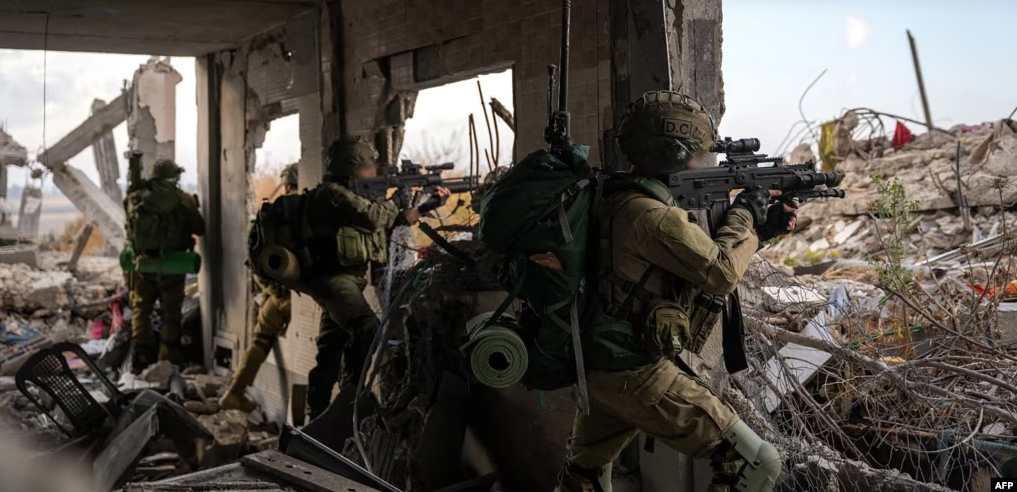

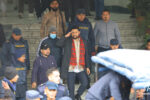
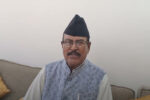
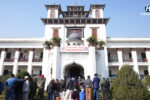
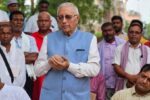

Comment